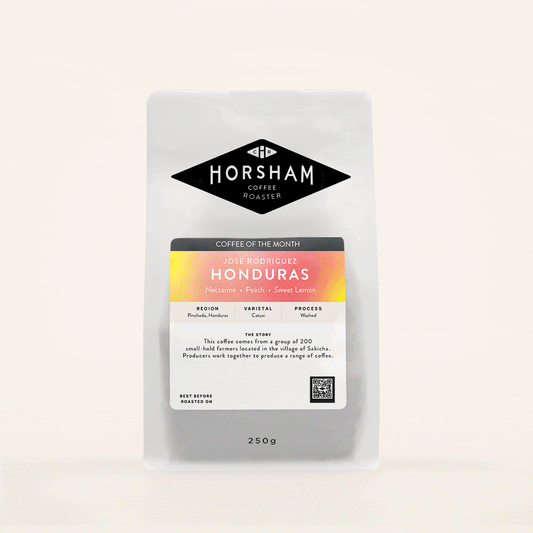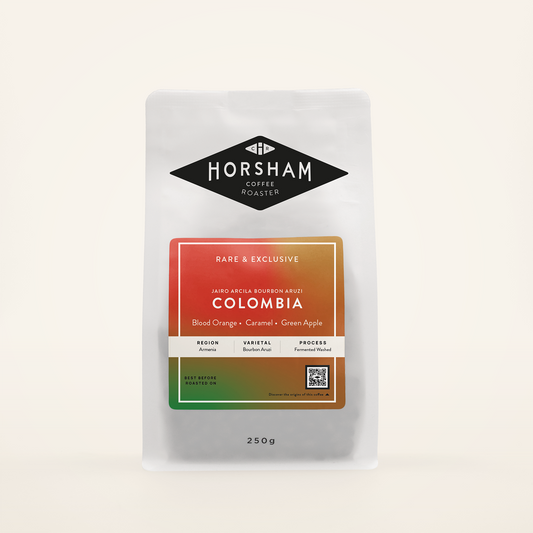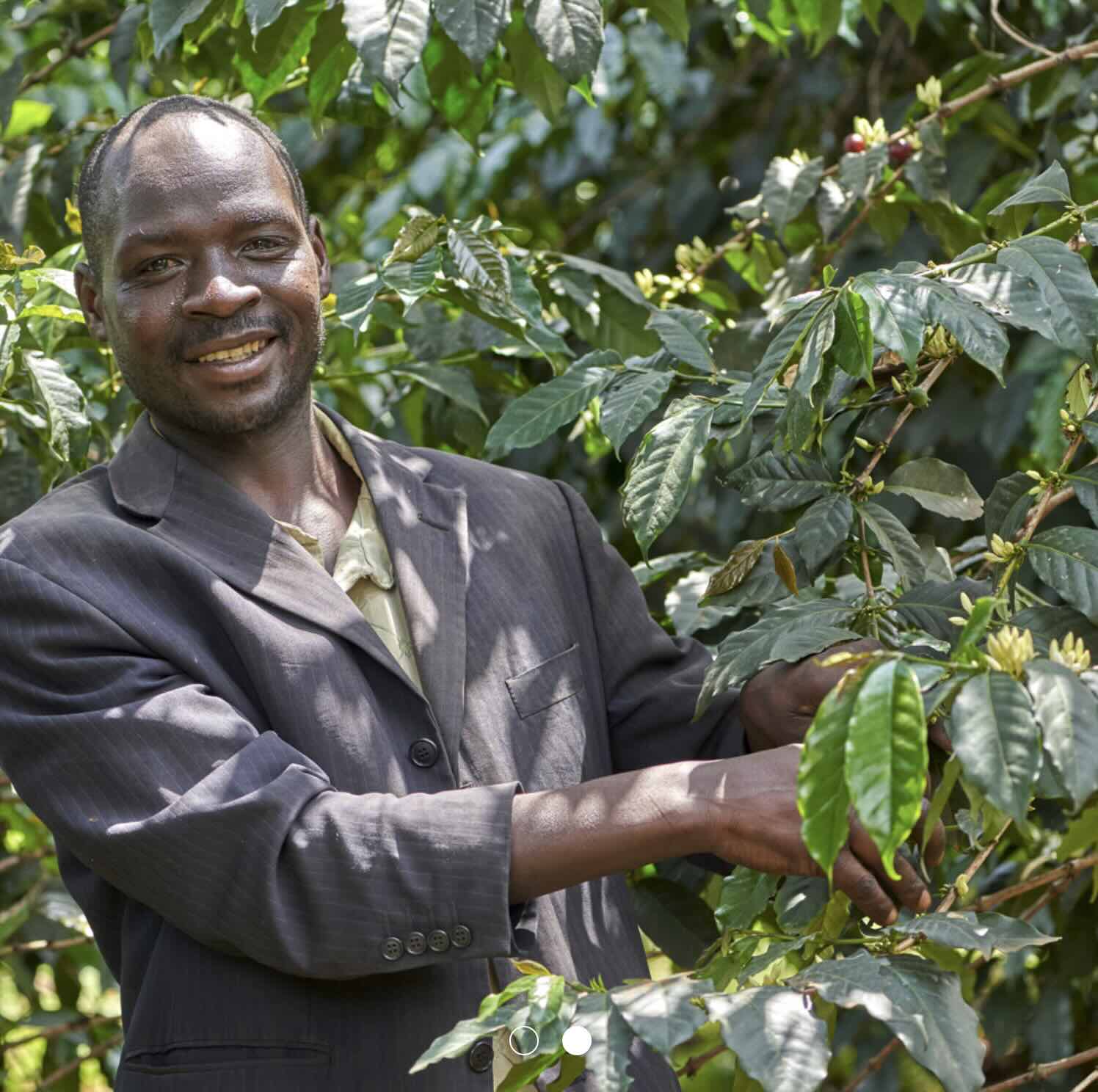
COFFEE FROM
Uganda
Uganda’s speciality coffee production is largely driven by smallholder farmers who cultivate coffee in natural, sustainable conditions, often intercropping with food crops and utilizing shade from banana and other trees.
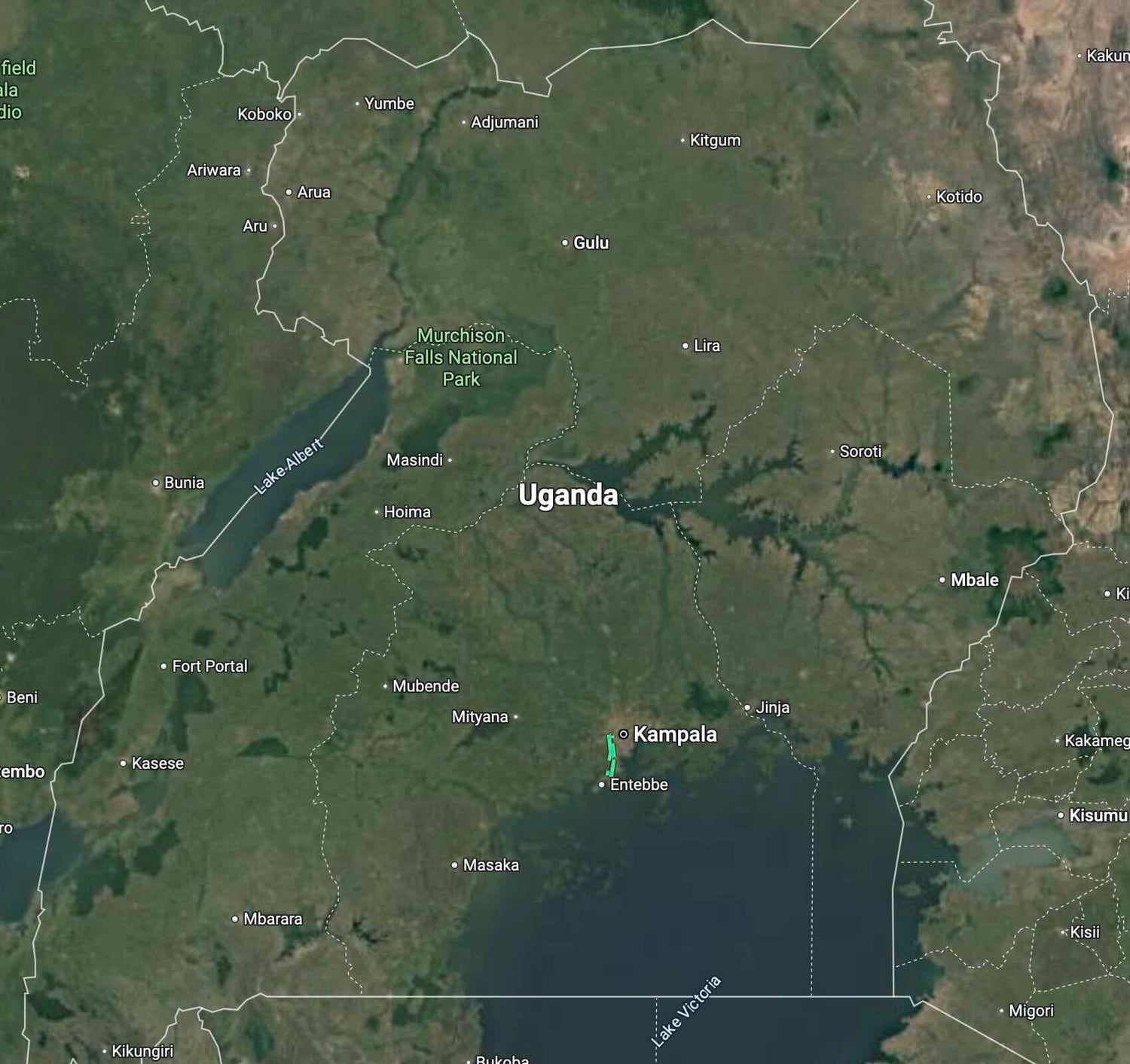
Overview
Speciality coffee in Uganda is predominantly hand-harvested, emphasising the picking of ripe cherries to ensure quality. Processing methods vary, including washed, natural, anaerobic, and fermentation techniques, each contributing distinct flavour profiles and enhancing the coffee’s complexity. For example, washed coffees produce clean and bright flavors, while natural and anaerobic processes enhance body and fruit notes. The development of wet mills near farming areas and cooperative pooling improves quality control, with rigorous sorting to remove defective beans. Initiatives and projects focused on speciality coffee have introduced standard operating procedures and quality controls to maintain consistency, accompanied by training and incentives for farmers to deliver ripe and well-sorted cherries.flavours
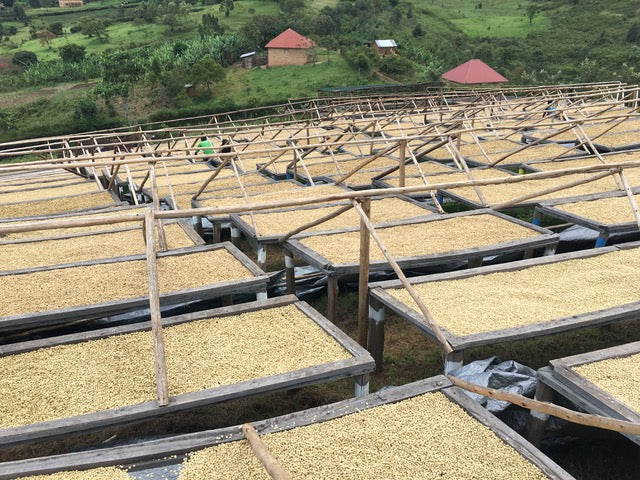
Processing Methods
Washing stations in Uganda produce a range of coffees, including clean washed coffee using grading channels, fermentation tanks and drying tables, as well as fruity natural processed coffees dried on raised beds.
Thanks to Falcon coffees for the images to the left and below showing washed and natural processed coffee in Uganda.
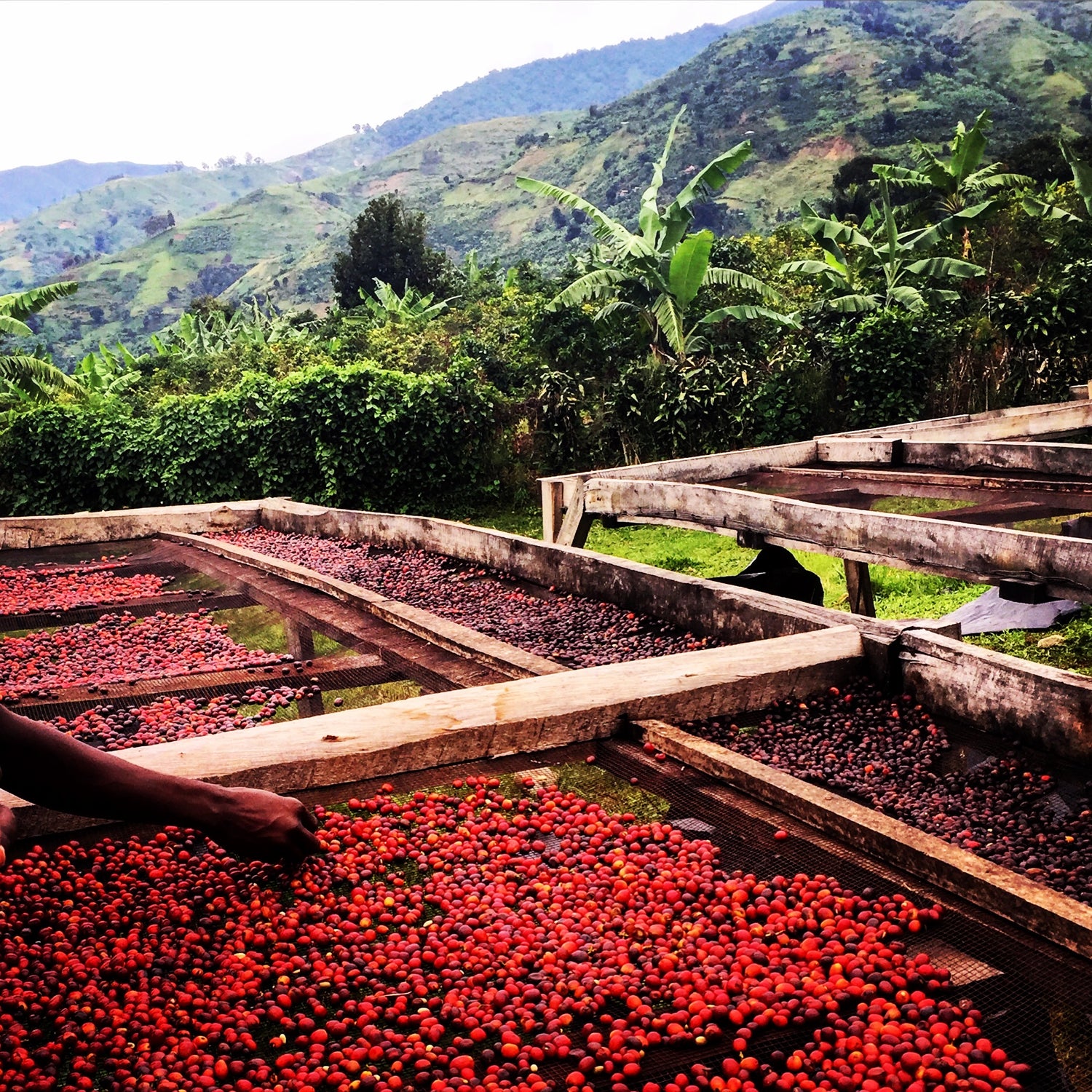
Flavour Profiles
Ugandan Arabica coffee is typically characterised by a bright acidity and a complex, fruity flavour profile. It commonly features notes of dried fruit, berries, citrus, and stone fruits, complemented by a chocolate-like body. Washed coffees are typically clean with stone fruit or orange-like tasting notes. The natural processed coffees tend to be very fruity with complex and diverse tasting notes.
These distinctive flavor nuances are largely influenced by the high-altitude and volcanic soils of Uganda's mountainous growing regions, such as Mount Elgon and the Rwenzori Mountains.
Explore Recommended Coffee
-
Horsham Coffee Roaster
Coffee of the Month Subscription
Regular price From £10.25Regular priceUnit price / per -
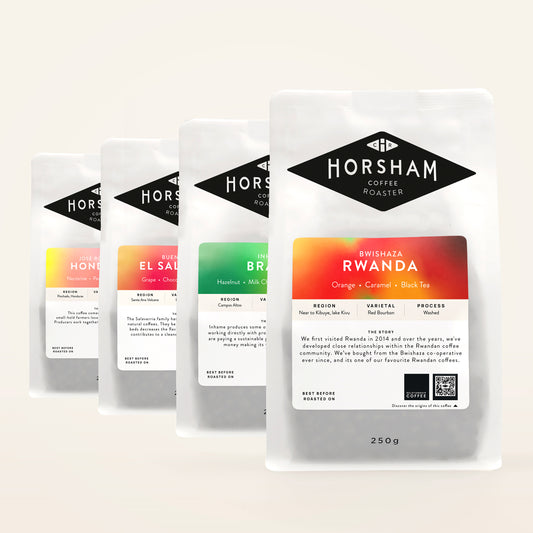 10% OFFHorsham Coffee Roaster
10% OFFHorsham Coffee RoasterSingle Origin Coffee Selection
Regular price £36.22Regular priceUnit price / per£40.25Sale price £36.22Sale -
Blood Orange | Caramel | Green Apple
Jairo Arcila Bourbon Aruzi Colombia | Fermented washed process
Regular price From £17.35Regular priceUnit price / per£17.35Sale price From £17.35NEW -
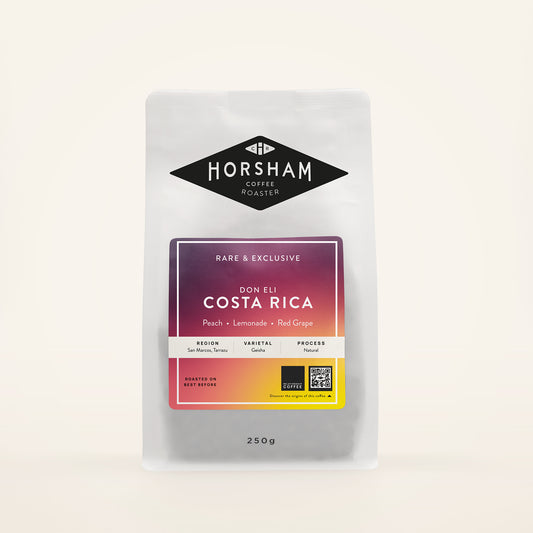 NEWPeach | Lemonade | Red Grape
NEWPeach | Lemonade | Red GrapeDon Eli Geisha Costa Rica | Natural
Regular price From £19.50Regular priceUnit price / per£0.00Sale price From £19.50NEW
